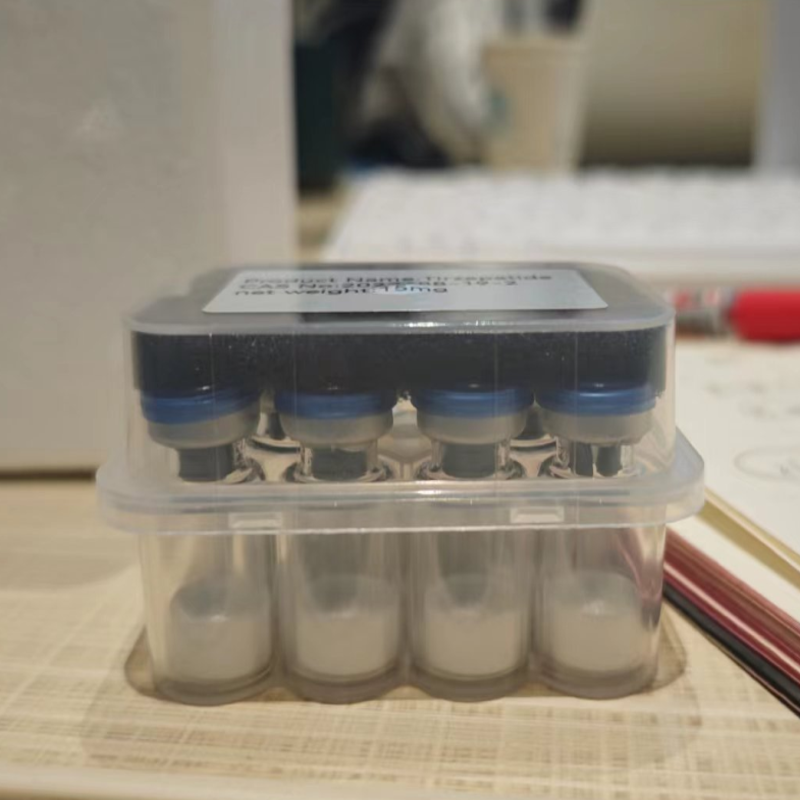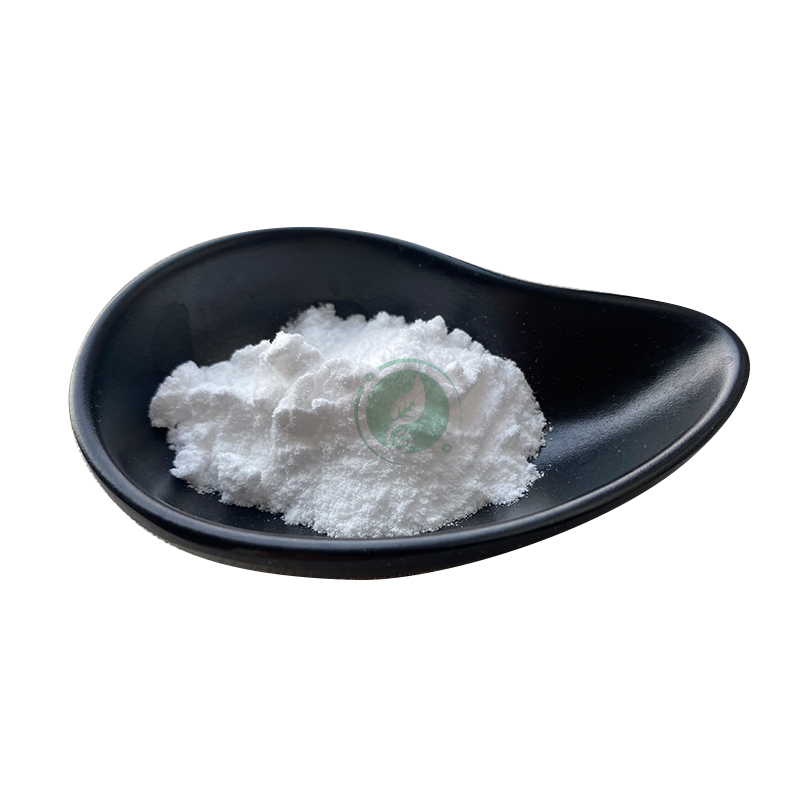There's BeDa's trouble! Great changes have taken place in the drug market of NSCLC!
-
Last Update: 2017-03-26
-
Source: Internet
-
Author: User
Search more information of high quality chemicals, good prices and reliable suppliers, visit
www.echemi.com
On March 24, asitini of AstraZeneca was approved for listing; on March 17, Bi announced that afatini officially landed in China; in February, Qilu pharmaceutical gefitini's first generic product was approved; and more than 50 enterprises are still on the way of copying Now that everything is coming, can Beida grow fast? What will happen to China's non-small cell market? What's the end of the future? On March 24, AstraZeneca announced through its official wechat that CFDA had officially approved the listing of its third generation lung cancer targeting drug tiresar (oxitinib mesylate tablets) in China AstraZeneca said that Teresa put it on the priority review list in September last year and accelerated its approval According to the process from application to approval of the product, it broke the speed record of the listing of imported drugs in China Teresa was approved to be listed in China this time, only about 2 and a half years before it formally submitted its registration application in China, less than 2 months before it formally submitted its listing application, and only about 15 months later than it was approved by the US FDA in November 2015 According to the data provided by the magic prescription of medicine, Teresa has set a record of the speed of listing of imported drugs in China after the implementation of chemical drug registration and classification in 2007 Teresa is the first third generation of oral and irreversible selective EGFR mutation inhibitor on the market in the world It is also the first approved tumor drug for egfrt790m mutation positive local advanced or metastatic non-small cell lung cancer in China Its first phase III survival data showed that tiresar, as a second-line therapy, could significantly prolong the progression free survival period by 5.7 months compared with the platinum based standard combination chemotherapy, which is the reason why it can enter the rapid review channel in the United States and China Behind the speed is CDE's recognition of its product strength, so will the listing of Teresa change the current pattern of lung cancer drug market? What is the current pattern of lung cancer market? What about the market potential? 126 billion market? Data show that by the end of 2015, China had nearly 4.3 million cancer cases The market of anticancer drugs in China is expanding, and its scale has exceeded 100 billion yuan In China, China incidence rate is the first place in China The data of the National Cancer Center in 2015 show that China has about 700 thousand of the new lung cancer cases annually According to the statistics of relevant data, by 2015, the scale of China's lung cancer treatment market has reached 26 billion yuan Lung cancer is mainly divided into small cell lung cancer and non-small cell lung cancer, in which non-small cell lung cancer accounts for about 80% - 85% of the total number of lung cancer According to the data collected by my cancer genome, the mutation rate of EGFR in non-small cell lung cancer is quite different among different races The mutation rate of EGFR in white non-small cell lung cancer patients is 10% - 15%, while in Asian non-small cell lung cancer patients, the mutation rate of EGFR is as high as 40%, and the mutation rate in Chinese population is as high as 50.2% The drug treatment of lung cancer is mainly divided into chemotherapy and targeted drug treatment Chemotherapy is more effective for tumors that spread to organs other than the lung, but the chemotherapy drugs are highly toxic in blood, which will damage normal cells while chemotherapy of tumor cells, resulting in many side effects, including the reduction of the number of white blood cells and platelets, hair loss, nausea, vomiting, etc Therefore, EGFR targeting drugs provide more choices for non-small cell patients, and become the mainstream of current treatment because of its high selectivity and relatively low side effects Up to now, a total of five EGFR-TKI drugs for NSCLC have been approved by FDA and CFDA, including gefitinib, erlotinib, exetinib, afatinib and ositinib Among them, the first generation EGFR inhibitors include: gefitinib, erlotinib and exetinib, all of which are reversible EGFR inhibitors; the second generation EGFR inhibitors include: afatinib, which is irreversible EGFR inhibitors It is characterized by Michael receptor in the molecule, covalent with cys797 or cys773, the amino acid residue of EGFR, which can overcome the ability of double mutation EGFR to combine with ATP; the third generation EGFR inhibitors include: oxitinib, an irreversible EGFR inhibitor, which is used for egfrt790m mutant positive metastatic non-small cell lung cancer 2 What is the competition pattern? Gefitinib, developed by AstraZeneca, is the first oral selective EGFR inhibitor to enter clinical trials It is also the first small molecule tyrosine kinase inhibitor targeting specific targets for solid tumor treatment It was first listed in Japan in 2002 In October 2003, gefitinib was approved by FDA as a single drug for the treatment of advanced non-small cell lung cancer with ineffective platinum and paclitaxel chemotherapy February 2005 Listed in China in June Yiruisha's curative effect on lung cancer in foreign countries has been controversial In Europe and the United States, yiruisha was once frustrated and the market performance fluctuated As a result, the global sales performance of eresa in its 15 years of listing is only one third of that of Roche erlotini After entering China, because Iressa showed certain activity for EGFR mutations in patients with lung cancer of different races, its efficacy exceeded the common first-line chemotherapy methods, and at first it also achieved good performance Erlotinib (Troika) was jointly developed by OSI, Roche and Genentech, and was approved by FDA in 2004 A number of first-line clinical trials show that erlotinib is superior to gefitinib in efficacy Both erlotinib and gefitinib have conducted a number of clinical trials, including first-line treatment, maintenance treatment and second-line treatment As the clinical data of trocaine show that the progression free survival period of the treatment group is more than 12 months, showing better efficacy than gefitinib, trocaine took 35% of the market share from AstraZeneca in 2007 when it was listed in China However, after the release of the follow-up research results that Iressa has a significant life extension effect on Oriental or non-smokers, Troika did not take too much advantage in the following competition in the Chinese market, and the market share remained at about 40% for a long time, and the break of this stalemate situation was the emergence of exetanei Exetane (Kemena), developed by local enterprise Beida pharmaceutical, was listed in 2011 under the title of China's first small molecule targeted anti-tumor drug with completely independent intellectual property rights In the face of AstraZeneca and Roche, the two major multinational giants, Beida is ready to win the market One of the important actions for Beida to establish its position in the Jianghu is to use exetane and gefitinib in the head-to-head randomized double-blind controlled trial in Kemena's phase III clinical trial The results showed that the progression free survival time of exetinia group was not worse than that of gefitinib group, and the median progression free survival time was 34% longer than that of gefitinib group The other secondary treatment end points were OS (total survival), Orr (objective remission rate) and DCR (disease control rate) In addition, the incidence of adverse reactions of exetane (60.5%) was better than that of gefitinib (70.4%) It is supported by solid clinical control test data that lays a good foundation for market promotion after listing As a result, as soon as kemenap goes public, it has achieved good results After that, it has made a long-term drive, doubling its annual growth rate By 2015, kemenap's sales revenue has reached 913 million yuan It is worth noting that the growth of Beida pharmaceutical industry is slowing down in 2016 According to its performance express, in 2016, the total business volume of Beida pharmaceutical was 1.03 billion yuan, an increase of 13.16% compared with 2015, while the operating profit was 365 million yuan, an increase of 2.1% compared with the same period last year In the whole non-small cell lung cancer market, in 2015, Iressa accounted for 45% of the market share, Troika took 25% of the market share, while Kemena took 30% of the market share, and the whole market pattern is showing a tripartite situation 3 The market will change dramatically Obviously, the positive market pattern of non-small cell lung cancer treatment drugs has changed significantly in the past year On March 17 this year, Boehringer Ingelheim announced in Guangzhou that afatinib, the world's first and only second-generation irreversible TKI (tyrosine kinase inhibitor) targeted drug, will officially enter the Chinese market On March 24, the third-generation product of AstraZeneca, ocitinib, was first launched And local pharmaceutical companies covet the 26 billion yuan market Everyone has devoted their attention to the imitations of gefitinib and erlotini, which have passed the patent period Among them, at least 25 companies in China are applying for the imitations of gefitinib, and at least 28 companies are applying for the imitations of erlotini Among them, there are many powerful enterprises such as Hengrui pharmaceutical, Luoxin pharmaceutical and Xiansheng pharmaceutical It is worth mentioning that on February 18 this year, Qilu pharmaceutical successfully made the first copy of gefitinib (irik) on the market From the perspective of the overall market, EGFR-TKI drugs for five non-small cell lung cancer will be on the market this year In addition, the generic drugs of Qilu pharmaceutical will split the market share of Eliza of AstraZeneca There is no doubt that the market competition will become very fierce In this regard, Beida, Roche and AstraZeneca are all trying to enhance their competitiveness Among them, Beida pharmaceutical chooses the strategy that before these follow-up competitors come in, it first obtains the support of the government through drug price negotiation In addition, in the newly released medical insurance catalog, Kemena is listed among them, which strengthens the moat of its market competition Troika, on the other hand, took the initiative to reduce the price by 30% in August last year in order to achieve greater coverage For AstraZeneca, though Iressa may receive fierce attacks, it can list the third generation product Teresa at this node From the perspective of its competitiveness, it can not only defend the current market share, but also have enough strength to attack Beida and Roche As for Bi, to be able to participate in the competition is the first, as for the future competitiveness, it remains to be seen.
This article is an English version of an article which is originally in the Chinese language on echemi.com and is provided for information purposes only.
This website makes no representation or warranty of any kind, either expressed or implied, as to the accuracy, completeness ownership or reliability of
the article or any translations thereof. If you have any concerns or complaints relating to the article, please send an email, providing a detailed
description of the concern or complaint, to
service@echemi.com. A staff member will contact you within 5 working days. Once verified, infringing content
will be removed immediately.







